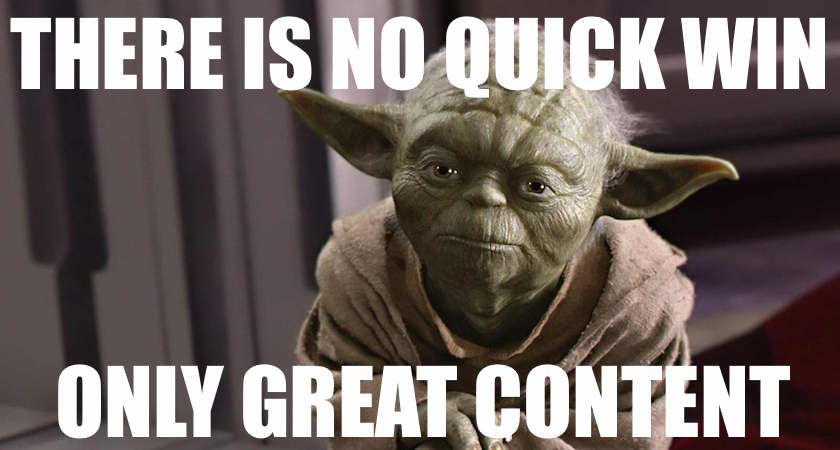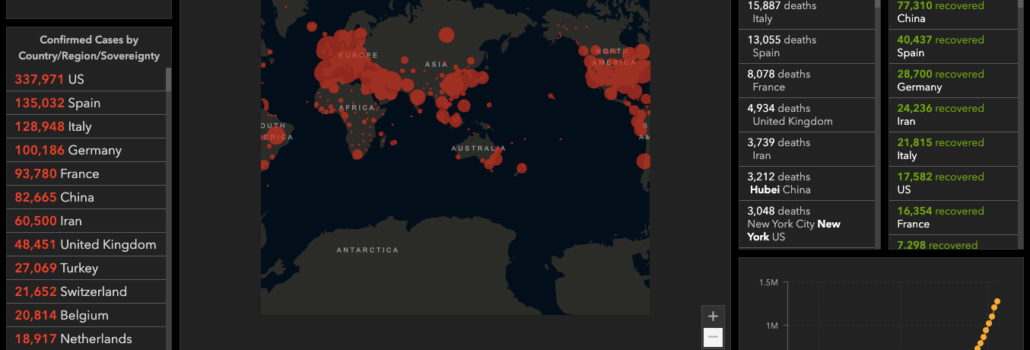What Google’s Recent “Avoid Link Building” Statements Really Mean
The SEO corner of the internet has been abuzz for more than a week now because Google’s John Mueller addressed the topic of link building in a vague, almost contradictory kind of way. And marketers are — rightly so — asking what it means. If you haven’t already seen the quote (and the YouTube embeds) on Search Engine Land or Search Engine Roundtable, here it is one more time. In response to a question about link building, John said,
In general, I’d try to avoid that. So that you are really sure that your content kind of stands on its own and make it possible for other people of course to link to your content. Make it easy, maybe, put a little widget on your page, “If you like this, this is how you can link to it.” Make sure that the URLs on your web site are easy to copy and paste. All of those things make it a little bit easier. We do use links as part of our algorithm but we use lots and lots of other factors as well. So only focusing on links is probably going to cause more problems for your website that it actually helps.
There’s a lot there, and not very in-between the lines. Should marketers try to avoid link building? Yes and no.
Yes, You Should Try to Avoid Link-Building
Mass-produced links are garbage. Links from low-quality websites are garbage. Purchased links are garbage.
https://www.youtube.com/watch?v=s6Lf-cnRywk#action=share
Google is on a mission to provide a killer user experience (you should be too), and they are fiercely determined to not be spammed. Penguin is updating continuously now, and it is hunting down and rooting out dirty links. Rote, rinse-and-repeat systems will always fail, and usually quickly. So yes, if your link building strategy is about quickly building a list of links from low-quality websites, you should try to avoid that. Link building is not a short-term or quick-win strategy.

No, You Should Not Avoid Link-Building
Building authentic links will still improve your SEO and add value to your site. Even as John said not to focus on link building, he acknowledged that, of course, Google does, “use links as part of our algorithm.”
Link-building in a post-Penguin search landscape just means relationship-building. A focus on link-building should mean creating high-quality content and engaging with audience members and influencers in your sphere. Design content campaigns that offer a full range of benefits: social media shares/exposure, PR, brand exposure, lead generation and lead nurturing, opportunities to give influencers valuable content or exclusives, opportunity to get in front of new audiences, etc.
And you can still design campaigns that are intended to build links directly — if you’re careful. Link building campaigns should not only be about links: they should be about building brand awareness, driving social shares, and building meaningful partnerships via influencer outreach. If links are just one KPI of a marketing campaign, and links aren’t “forced,” chances are you’re safe.
When you add value to everyone you’re involved with, you add value to your brand. Sharing links becomes a mutual act of appreciation and respect. After you’ve earned a voice with your audience, influencers will often link to your content of their own volition, and if not, your relationship opens a door for you to politely ask for a link now and then.
So Why Did John Say That?
John gave the soundbite that Google prefers rather than jumping into a lengthy discussion that might seem to lend permission to black hat SEO tactics. Google will always take the PR position against anything that might scam search results, or simply cost them time and energy trying to engineer solutions around. Yes, they consider links in their algorithms, but they’d rather you not try to build links so they don’t have to try to sort the good from the bad.
It’s absolutely true that Google’s algorithms are about much more than links. Recent acquisitions of DeepMind, investments in quantum processors, and the acquihiring of AI experts from the UK are all serious indicators of Google’s investment in mind-reading — er, optimizing their search experience. So while link-building is only one part of a good SEO strategy, it is still (and will be for the foreseeable future) a foundational asset when done well. Google, however, will never admit that it’s okay; they will always take the high road.
Your Next Step
If you’ve been signing up for, trading, or purchasing links, please (for the last time) stop. If you’ve never audited your links to find out what spammy sites might be lowering your signal with Google, please do. If you’re building relationships through great content and social media engagement, don’t be afraid to swap guest posts or ask a “friend” for a link now and then. And if you’ve been sitting on the sidelines, nervous about link-building because you don’t want to be Penguin-slapped, fear not. Link-building done right is a strong, long-term strategy. Get out there and start making friends.
What's Next?
Profound Strategy is on a mission to help growth-minded marketers turn SEO back into a source of predictable, reliable, scalable business results.
Start winning in organic search and turn SEO into your most efficient marketing channel. Subscribe to updates and join the 6,000+ marketing executives and founders that are changing the way they do SEO:
And dig deeper with some of our best content, such as The CMO’s Guide to Modern SEO, Technical SEO: A Decision Maker’s Guide, and A Modern Framework for SEO Work that Matters.




